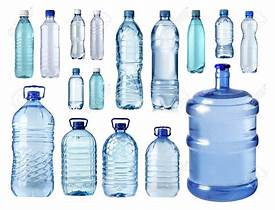What is Pet Plastic Bottles?
PET plastic bottles are widely used for packaging beverages, food, and personal care products. They are lightweight, shatterproof, and have excellent barrier properties. PET plastic is also recyclable, making it an environmentally friendly option.

Properties of PET Plastic Bottles
PET plastic bottles are made from polyethylene terephthalate, a thermoplastic polymer. PET plastic has a number of properties that make it ideal for packaging, including:
1. Lightweight: PET plastic is one of the lightest packaging materials available, which makes it easy to transport and handle.
2. Shatterproof: PET plastic is very strong and shatterproof, making it a safe choice for packaging beverages and food.
3. Excellent Barrier Properties: PET plastic has excellent barrier properties, which means that it can protect the contents of the bottle from oxygen, moisture, and other contaminants.
4. Recyclable: PET plastic is recyclable, which makes it an environmentally friendly option. PET plastic bottles can be recycled into new bottles, clothing, and other products.
Benefits of Using PET Plastic Bottles
There are many benefits to using PET plastic bottles, including:
1. Cost-effective: PET plastic bottles are a cost-effective packaging option, especially for large quantities.
2. Lightweight: PET plastic bottles are lightweight, making them easy to transport and handle.
3. Shatterproof: PET plastic bottles are very strong and shatterproof, making them a safe choice for packaging beverages and food.
4. Excellent Barrier Properties: PET plastic has excellent barrier properties, which means that it can protect the contents of the bottle from oxygen, moisture, and other contaminants.
5. Recyclable: PET plastic bottles are recyclable, which makes them an environmentally friendly option.
Drawbacks of Using PET Plastic Bottles
There are some drawbacks to using PET plastic bottles, including:
1. Not Biodegradable: PET plastic is not biodegradable, which means that it can take hundreds of years to decompose. However, PET plastic can be recycled into new bottles, clothing, and other products.
2. Can Leach Chemicals: PET plastic can leach chemicals into the food or beverage that it contains, especially if the bottle is heated or exposed to sunlight. However, the amount of chemicals that leach into the food or beverage is considered to be safe by the FDA.
3. Can Be Difficult to Recycle: PET plastic bottles can be difficult to recycle because they are often contaminated with food or beverage residue. However, there are a number of recycling programs that accept PET plastic bottles.
Declaration: All article resources on this website, unless otherwise specified or labeled, are collected from online resources. If the content on this website infringes on the legitimate rights and interests of the original author, you can contact this website to delete it.





